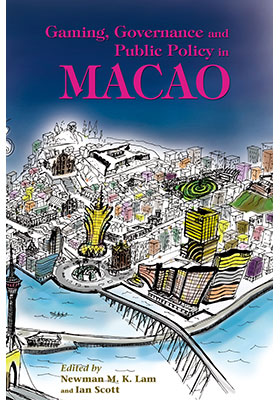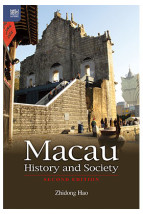Gaming, Governance and Public Policy in Macao
(澳門博彩業的管治與公共政策)
ISBN : 978-988-8083-28-2
August 2011
320 pages, 6″ x 9″, 8 color illus.; 50 tables
Ebooks
Also Available on
The small city of Macao—formerly a Portuguese colony, now a Special Administrative Region of China—liberalised its gaming industry in 2002. Since then a score of new casinos have been built and millions of gamblers have flooded in from mainland China. Per capita income has more than doubled in five years and the gaming operators have outstripped their Las Vegas counterparts in revenue and profits. But rapid economic growth has also brought social and political problems. In this structured survey of modern Macao, 15 experts examine the effects of massive foreign investment, the problems of governance, and increasing public policy challenges in a time of rapid change and potential social instability. They also discuss the efficacy or otherwise of measures to address economic hardship, social dislocation and political change over the past decade.
Gaming, Governance and Public Policy in Macao will be of interest to anyone concerned with the gaming industry and its uses in strategies for economic growth. For those who want to know more about Macao than its gaming tables and neon lights, the book will provide a range of interpretations of the way in which the city is developing.
“This important volume provides an informative and comprehensive overview of governance and public policy in Macao. A major contribution is the link that is traced between the recent liberalisation of gaming policy and emerging challenges to social development, politics, and administration. Strong attention to the deeper historical background also enables contemporary problems to be understood within a perspective that stretches back well into the last century, before Macao’s establishment as a special administrative region of China. Gaming, Governance and Public Policy in Macao will be a valuable reference for all students and researchers interested in post-1999 Macao.” —Tak-Wing Ngo, Professor of Political Science at the University of Macau and IIAS, Professor of Asian History at Erasmus University Rotterdam.






